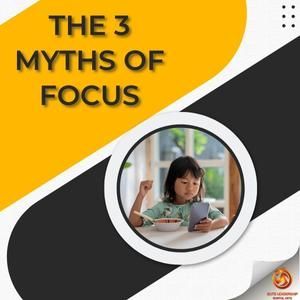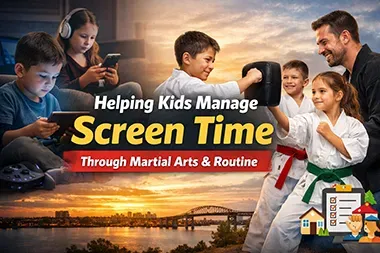The 3 Myths of Focus
Focus is the ability to concentrate or to center attention on a stimulus. Not everyone has the same ability to focus, and some are better than others at it. This difference is responsible for creating many misconceptions about focus. If you are curious and want to learn more, read ahead as we debunk three common myths about focus!
Myth #1 If You Cannot Focus, You Have ADHD.
Many people who struggle to focus automatically assume they have ADHD and are later surprised when their doctor concludes that they do not.
Attention Deficit Hyperactivity Disorder (ADHD) is a complex diagnosis and needs to be made by a specialist. It is characterized by inattention, hyperactivity, and/or impulsivity. Some symptoms include failure to pay attention, poor time management, forgetfulness, and difficulty remaining seated. The inability to focus is also a common symptom, but it is never the only symptom.
Although ADHD is a cause, there are many reasons why you might have trouble focusing, like stress, worry, anxiety, lack of sleep, and poor eating habits.
Worrying about ADHD is normal, especially if your inability to focus interferes with your performance at work or school. If you think you might have ADHD, voice your concerns to your healthcare provider. They can help you identify the root cause of the problem. Once you know the issue, you can discuss lifestyle changes and an appropriate care plan to improve your focus.
Myth #2 It Cannot be taught.
It is a common misconception that focus is an innate ability, meaning that you are either born with it or not. However, many strategies exist to improve focus that work even for those who struggle the most. Indeed, the mind is like a muscle, meaning you can train it to be stronger.
The first thing you have to do if you want to improve your focus is to look at external factors that could impact your ability to concentrate. Are you getting enough sleep? Do you exercise regularly? Do you have healthy eating habits? If you answered no to any of those questions, it could explain your inability to focus. Once you fix those issues, you can move on to the next step.
One of the most helpful things to improve focus is to practice mindfulness, a type of meditation that makes you pay attention to the present moment without interpretation or judgment. According to studies, mindfulness rewires the brain to help deal better with stress and distractions, improving focus.
Some of the most popular mindfulness exercises include the body scan, mindful listening, and the raisin exercise. If mindfulness is new to you, do not worry. There are tons of smartphone applications that offer guided mindfulness sessions. You can also search the internet for other popular mindfulness exercises.
In addition to practicing mindfulness, you can do some popular brain exercises, like sudoku, jigsaw puzzles, and chess. The scientific literature shows that these activities improve cognitive abilities in adults, including concentration and focus.
Finally, spending time in nature, having houseplants, and taking regular breaks are other proven ways to improve your focus.
Myth #3 You Can Focus on Multiple Things at Once.
Did you know that your brain can only focus on one thing at a time? If you are a pro multi-tasker, you might be skeptical about this one, but we assure you that it is true.
When multitasking, you are not focusing on multiple things at once. Instead, you shift your focus very quickly from one task to another. As you can imagine, this constant shift of focus is very taxing on the mind. Indeed, studies have shown that multitasking decreases overall performance and productivity.
Careful, we are not saying that you cannot accomplish many things during the same day or even the same hour. All we're saying is that you should not try to complete all your tasks simultaneously. A useful tip is to follow the 20-minute rule: focus your attention on one activity for 20 minutes and then switch to another one.
The Take-Home Message
If you struggle with focusing, it does not automatically mean you have ADHD. Many reasons could explain your inability to concentrate, like lack of sleep or physical activity. Thankfully, it is possible to improve your ability to focus if you wish to. One way to do so is to practice mindfulness.
Finally, multitasking is not an appropriate way to improve productivity because the brain cannot focus on two things at once. For maximal performance, work on a single task for 20 minutes at a time before switching to the next.




